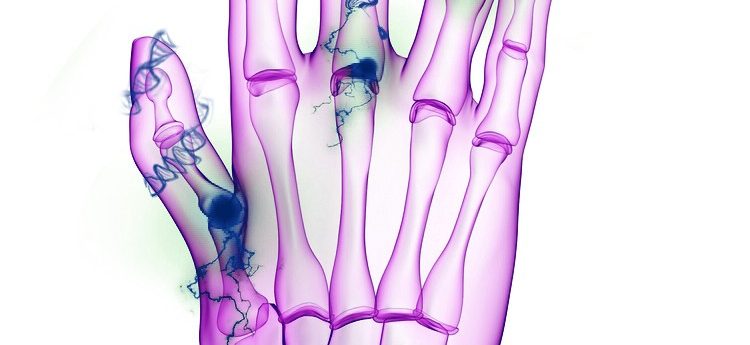COVID-19 and rheumatic diseases: what factors may affect odds of hospitalization?

Results of an analysis of some of the initial provider-entered data from the COVID-19 Global Rheumatology Alliance’s international registry have been published.
In March 2020, the COVID-19 Global Rheumatology Alliance launched an international, physician-reported registry to facilitate global sharing of information from medical practitioners on how COVID-19 is impacting patients with rheumatic diseases and how the virus interacts with rheumatic disease-associated comorbidities and medications.
In an interview with The Evidence Base®, Philip Robinson (Royal Brisbane & Women’s Hospital, Brisbane, Australia), Chair of the Alliance, explained: “In the absence of any information, observing real-world outcomes from large numbers of cases helps both inform current healthcare practice, as well as highlight patterns that may warrant further investigation…”
To date, data on more than a thousand individuals across the globe have been entered in the registry and, in an article published in the Annals of the Rheumatic Diseases, investigators on behalf of the Alliance detail results of their analysis of some of these initial provider-entered data.
You may also be interested in:
- Look behind the lecture: the relevance of registry and real-world data throughout a product’s lifecycle
- The relevance of registry and real-world data during the COVID-19 pandemic: an interview with Philip Robinson
- Look behind the lecture: do registry and real-world data have places in healthcare decision making?
The analysis pertains to data on the first 600 individuals input in the registry, from 40 different countries, who have rheumatic diseases and contracted COVID-19; researchers analyzed demographic factors – including individuals’ age, sex, smoking status, rheumatic disease diagnosis, comorbidities and rheumatic disease medications – and employed multivariable logistic regression to estimate odds ratios for hospitalization associated with these factors.
Amongst this study cohort, 46% of individuals required hospitalization for COVID-19 and the total mortality rate was 9%. In line with existing research, the odds of hospitalization were observed to higher for older individuals and those with pre-existing comorbidities – including hypertension and cardiovascular disease.
By creating multivariable-adjusted regression models, researchers determined that use of prednisone – a glucocorticoid – at a dose of 10 mg/day or greater was associated with increased odds of hospitalization. By contrast, use of an anti-TNF-alpha medication was associated with reduced odds of hospitalization.
No association between individuals’ use of antimalarial medications, non-steroidal anti-inflammatory drugs or conventional disease-modifying antirheumatic drugs – used alone or in combination with either a biologic or JAK inhibitor – and their odds of hospitalization were observed.
In the study, the authors state: “This series of cases demonstrates that the majority of patients with rheumatic diseases captured in our registry recover from COVID-19. In some cases, exposure to specific medication classes is associated with lower odds of hospitalization; however, these findings should be interpreted with caution because of a high risk of bias.”
Important limitations of the study include the fact that, by nature of the registry, not all cases of COVID-19 in individuals with rheumatic disease are captured, which places limitations on causal conclusions drawn from the data. In addition, because individuals had to have a rheumatic disease and COVID-19 in order to be included in the registry, no comparisons can be made with individuals without a rheumatic condition or with rheumatic disease but not COVID-19. Further, due to the selection biases, the data cannot be used to comment on the total incidence of COVID-19 in this patient population or its severity.
Nevertheless, in the article, the authors concluded: “Results support the guidance issued by the American College of Rheumatology and the European League Against Rheumatism, which suggest continuing rheumatic medications in the absence of COVID-19 infection or SARS-CoV-2 exposure.”
Sources:
Gianfrancesco M, Hyrich KL, Al-Adely S et al. Characteristics associated with hospitalisation for COVID-19 in people with rheumatic disease: data from the COVID-19 Global Rheumatology Alliance physician-reported registry. Annals of the Rheumatic Diseases. 79(7): 859–866 (2020); https://rheum-covid.org/; www.eular.org/sysModules/obxContent/files/www.eular.2015/1_42291DEB-50E5-49AE-5726D0FAAA83A7D4/eular_press_release_covid_registry_final.pdf
